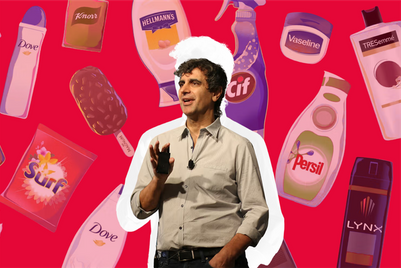
So says new research that also found one in four influencers want to establish relationships with brands that are aligned with their moral standpoints on diversity, the environment and social issues. In addition, more than 50 per cent of influencers believe diversity is the top issue that needs to be addressed by marketers and brands.
The research, commissioned by Takumi, surveyed 756 marketers and 291 influencers in the UK, US and Germany.
Of the marketers, 73 per cent said they have allocated more resources to influencer marketing in the past 12 months.
Investment was increasing particularly fast in the retail (79 per cent), legal (79 per cent) and manufacturing (75 per cent) sectors.
Marketers are exploring additional social-media channels: over the next year, 58 per cent are considering working with influencers on YouTube, followed by a further 55 per cent on Instagram, 35 per cent on TikTok, 20 per cent on Twitch, and 10 per cent on Triller. Brands are also working with influencers across more mainstream advertising channels, including out of home (83 per cent), print (80 per cent) and TV and radio (81 per cent).
Sixty per cent of the marketer respondents agreed influencer marketing provides better return on investment for brand marketing campaigns compared with traditional advertising.
Consumer behaviour
Takumi also commissioned consumer research into influencers, with 3,010 respondents aged 16 and over in the UK, US and Germany.
A quarter of the 16- to 24-year-olds surveyed said Instagram is the most likely advertising platform to lead to a purchase.
Generally, younger age groups are more likely to source news updates and opinions from influencers than journalists and established news outlets.
Across all age groups, the proportion that do so was 24 per cent in the UK, 23 per cent in Germany, and 28 per cent in the US. However, across all three countries this rises to 38 per cent for both the 16- to 24-year-old and 25- to 34-year-old age groups. For 35- to 44-year-olds, the proportion is 34 per cent.
Overall, 41 per cent of consumers agreed that influencers should use their platforms to discuss current affairs and everyday activism.
One in three consumers find influencer content more relatable to their real lives than content produced by brands, which explains the desire for current affairs-driven content, Takumi said.
Mary Keane-Dawson, group chief executive of Takumi, said: “With 73 per cent of marketers upping spend in influencer marketing, it is clearly a core pillar of any effective brand marketing strategy.
“Despite growth, the industry cannot rest on its laurels. With conversations around diversity, equality and inclusivity gaining momentum in the industry and wider society, it’s clear that consumers are hungry for influencer marketing with a social conscience. Marketers need to consider how their influencer campaigns will champion progress and reflect the real lives and concerns of consumers if they want to remain relevant and compelling.”



.jpg&h=334&w=500&q=100&v=20250320&c=1)



.png&h=334&w=500&q=100&v=20250320&c=1)

.png&h=334&w=500&q=100&v=20250320&c=1)

.png&h=334&w=500&q=100&v=20250320&c=1)

.png&h=268&w=401&q=100&v=20250320&c=1)

.jpg&h=268&w=401&q=100&v=20250320&c=1)

.jpg&h=268&w=401&q=100&v=20250320&c=1)
.png&h=268&w=401&q=100&v=20250320&c=1)

